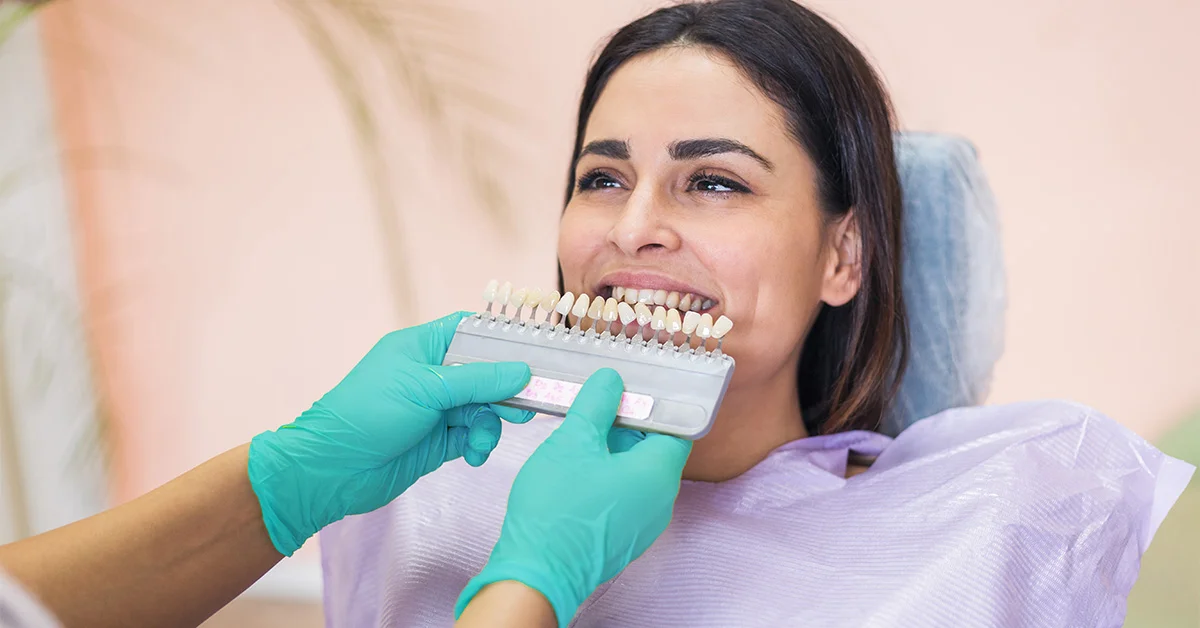What is meant by “dental crown”?
A dental crown is a common type of dental restoration. A crown helps to restore the functionality, size, shape, and appearance of a damaged or misshapen tooth. Dental crowns are also used to protect teeth after a root canal procedure and to close gaps between teeth.
What Should You Do If Your Dental Crown Is Broken or Missing?
If your dental crown falls off, you should schedule an emergency dental appointment. If your dental crown falls off over the weekend or in the evening, you won’t be able to get an appointment until at least the next day. But don’t be alarmed.
- Stay Calm:
- Before we get into what to do if your dental crown falls off, the most important thing to remember is to remain calm.
- It can be frightening to lose a dental crown but keep in mind that it is repairable.
- It may be uncomfortable at first, but the damage is not permanent.
- Examine the Crown:
- Knowing what to do if your dental crown falls off is dependent on the condition of the crown. Locate the crown if possible.
- Examine the area carefully to determine the extent of the damage.
- If there is no tooth inside the crown, this is a good sign that reattachment may be possible once your dentist sees you.
- It is normal to see a small amount of metal inside the crown. That is the crown’s post, and it helps to keep the crown anchored to your tooth.
- Contact Your Dentist:
- One of the best things you can do if your dental crown falls off is to contact your dentist as soon as possible.
- Tell them what happened and request an emergency dental appointment. Your dentist may inquire as to whether you still have the crown and what condition it is in.
- Make an appointment as soon as possible to replace or reattach the crown.
- Clean the Crown:
- If you still have the crown, gently wash it off with soap and water.
- Place it in a secure location where it will remain clean, such as a plastic bag.
- Keep it somewhere safe, and remember to bring it with you when you go to the dentist.
- Protect Your Teeth:
- Your crown would have been originally attached to protect a damaged tooth. It is critical to understand what to do if your dental crown falls off in order to protect the underlying tooth structures.
- The tooth’s nerves and sensitive tissue may now be exposed and sensitive to touch and temperature.
- Avoid Specific Foods:
- If your dental crown falls out, you should avoid crunchy, chewy, or tough foods.
- You may also experience pain when eating certain foods, particularly those that are hot or cold.
- Avoid these foods until you can see your dentist have the crown repaired.
- Consult Your Dentist:
- If you scheduled an emergency dental appointment, you should be able to see your dentist right away.
- Bring the crown with you to your dentist appointment, as it may be able to be reattached. If the crown was severely damaged, you will almost certainly require a new crown.
How Does Your Dentist Repair a Broken Crown?
- If you have the crown, it will be cleaned and examined. The tooth will also be examined to ensure that the core is structurally sound and that no dental cavities have developed.
- If the exam and X-rays reveal that the crown still fits and protects the tooth, it may be re-cemented onto the tooth.
- If the crown is lost or no longer intact, the tooth will be prepared for a temporary crown before a permanent one is created.
- In some cases, the tooth may be too damaged for another crown to be placed, necessitating extraction and restoration.
Dental crown maintenance
There are a few things you can do to increase the chances of your crowns lasting for many years.
- Maintaining good oral hygiene by brushing twice a day for two minutes at a time with fluoride toothpaste, flossing daily, and visiting your general dentist every six months for a dental cleaning and checkup. Your dental crowns and other restorations will be examined during these visits.
- Use anti-bacterial and fluoride mouthwash to help remove plaque. Use this mouthwash in addition to, not as a replacement for, the above oral hygiene techniques.
- Finally, avoid any damage to the dental crowns. This includes not chewing on hard or sticky foods, wearing a mouth guard during sports, and sleeping with a night guard, particularly if you suffer from nighttime clenching and grinding of the teeth.
If you’ve lost or broken a dental crown and the tooth beneath has become damaged, you should think about getting a dental implant. Please contact Partha Dental, Skin, and Hair Clinic for more information.


